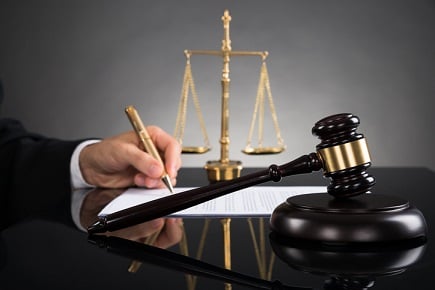

UK Insurance Ltd (UKI), which owns insurance brand Churchill, scored a victory when the Supreme Court unanimously allowed its appeal against AXA policyholder Phoenix Engineering aka R & S Pilling.
The case stemmed from a 2010 blaze that damaged not only Phoenix’s premises but adjoining premises as well, after an employee’s car caught fire while being repaired within the company’s property. A mechanical fitter at the time, Thomas Holden used his workplace’s garage to carry out repairs to his vehicle, which was insured by Churchill.
The incident saw Phoenix’s insurer AXA pay out more than £2 million as part of its property damage and public liability coverage. This led the carrier to make a subrogated claim against Holden, essentially under his motor insurance policy, for the losses.
UKI then sought a declaration that it is not liable to indemnify the vehicle owner against the claim. In 2016, Judge Waksman QC of the High Court held that the insurance group was entitled to the declaration, but the following year Phoenix’s camp secured a win at the Court of Appeal.
Yesterday the Supreme Court delivered a judgment in favour of UKI, which was represented by Keoghs LLP.
“The real dispute is therefore between the two insurance companies,” stated Lord Hodge in the 20-page Supreme Court document seen by Insurance Business. “At its simplest, UKI says that the policy does not respond to third-party claims involving the car while the car is being repaired on private premises, such as Phoenix’s garage.
“Phoenix contends that the policy covers accidents involving the car off-road and that in any event the repair of the car can properly be described either as the use of it, or as arising out of its use, on a road or other public place.”
He said the question is the correct interpretation of the policy against the background of domestic and European Union legislation which imposes compulsory third-party insurance in respect of motor vehicles.
Lady Hale, Lord Wilson, Lady Arden, and Lord Kitchin agree with Lord Hodge, whose judgment read: “In my view, neither English domestic case law nor the jurisprudence of the CJEU (Court of Justice of the European Union) supports the view that the carrying out of significant repairs to a vehicle on private property entails the ‘use’ of the vehicle.”
Commenting on the Supreme Court decision, Kennedys’ Motor Group head Ian Davies cited “very useful clarity” but at the same time acknowledged the highly specific nature of the case.
“It will undoubtedly provide clarity in many ongoing cases, so should be welcomed and it is ‘undoubtedly a logical decision’,” said the Kennedys partner in a statement sent to Insurance Business.
“In today’s (March 27) decision it is relatively clear that the vehicle was immobile (on its side) and in the process of being repaired, it was clearly not driven and therefore not being ‘used’. What if the fire had occurred when the vehicle was allowed to tick over while stationary post-repairs?”
For his colleague Mark Walsh, the judgment goes to show that motor insurance providers are not always liable for all claims.
“With the R&S Piling and Cameron Supreme Court decisions coming in quick succession, motor insurers can breathe a little easier in the knowledge that there is now greater certainty as to the circumstances in which they will be liable to deal with claims connected to the vehicle to which the policy relates,” noted Walsh.
Meanwhile also pleased with the development was insurance law firm BLM, which posted on its website: “The Supreme Court – in the course of resolving a coverage dispute between a property damage insurer and a motor insurer – has provided welcomed clarity about the circumstances in which a liability may properly be described as having arisen out of the ‘use’ of a vehicle, pursuant to Section 145(3)(a) of the Road Traffic Act 1988.”
